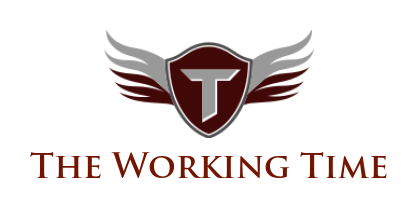Simply put, something that is Informational provides knowledge, facts, or explanations. It’s all about helping people learn, understand, or solve a problem. Think articles, how-to guides, tutorials, explainer videos, FAQs, and even infographics.
When it comes to digital content, “ Informational” refers to content specifically created to educate or inform rather than to entertain or sell.
🧐 Why Is Informational Content Important?
In today’s digital world, people crave answers. They Google everything from “how to change a tire” to “what is quantum computing.” This is where informational content shines—it gives people exactly what they’re looking for.
But it’s not just helpful to readers—it’s a game-changer for creators, bloggers, businesses, and marketers.
🎯 Benefits of Informational Content:
-
Builds trust and authority
-
Boosts organic search traffic
-
Attracts backlinks
-
Keeps visitors on your site longer
-
Positions your brand as a thought leader
-
Educates your audience without hard-selling
Basically, it’s the long game—but it pays off.
🧩 Types of Informational Content
There are many flavors of informational content, and each serves a unique purpose. Here’s a breakdown:
📄 1. Blog Posts & Articles
These are your bread and butter. Think “how to,” “why,” and “what is” posts. They’re straightforward, keyword-rich, and optimized for SEO.
Examples:
-
“How to Start a Podcast in 2025”
-
“What Is the Difference Between AI and Machine Learning?”
-
“10 Tips for First-Time Homebuyers”
📊 2. Infographics
Visual learners rejoice! Infographics present information quickly and clearly using graphics, stats, and icons.
They’re highly shareable and great for Pinterest or LinkedIn.
🎥 3. Explainer Videos
Short, animated videos that break down complex topics—perfect for landing pages, YouTube, or email marketing.
Example: “What Is Cryptocurrency? A 2-Minute Explainer”
📘 4. E-books and Whitepapers
Long-form, in-depth, downloadable guides. Great for generating leads or establishing deep credibility.
📋 5. FAQs and Glossaries
Answering common questions in your niche is not only helpful—it’s a goldmine for SEO.
🔍 Informational vs. Transactional Content
Here’s a common confusion: Isn’t all content meant to sell something? Nope.
Informational content educates. Transactional content sells.
Let’s say someone Googles:
-
“How to clean a leather couch” → They want advice = Informational
-
“Buy leather cleaner online” → They’re ready to purchase = Transactional
Understanding the difference helps you meet your audience where they are in their journey.
💡 How to Write Great Informational Content
Okay, so you’re sold on the idea. But how do you actually write content that informs and engages?
✍️ 1. Know Your Audience
Who are they? What problems do they have? What words do they use when searching?
Pro tip: Use tools like Google’s “People also ask,” Reddit threads, or AnswerThePublic.com for inspiration.
🔑 2. Target the Right Keywords
Use keyword research to identify questions or terms people are searching for. Think “how to,” “what is,” “guide to,” and “tips for.”
🧱 3. Structure It Well
People scan, not read. So format it for skimming:
-
Use headings (H2, H3)
-
Add bullet points and lists
-
Break content into short paragraphs
🗣️ 4. Write Conversationally
Ditch the academic tone. Pretend you’re explaining the topic to a friend over coffee. Use contractions, questions, and examples.
📈 5. Add Value
Go beyond the obvious. Add tips, real-life examples, images, or downloadable resources. Make it useful, not just readable.
💻 SEO and Informational Content: A Match Made in Ranking Heaven
Google loves content that answers user questions. Informational content plays a key role in search engine optimization (SEO).
🔥 How It Helps:
-
Ranks for long-tail keywords
-
Generates backlinks
-
Improves dwell time (how long users stay on your site)
-
Can get featured snippets (those fancy boxes at the top of Google results)
So if you’re trying to boost your website’s visibility, informational content isn’t just helpful—it’s essential.
🧭 Where to Use Informational Content
Informational content isn’t just for blogs. You can weave it into various parts of your business or platform:
-
Blog posts
-
Product support pages
-
Landing pages
-
Email newsletters
-
Social media captions
-
Video scripts
-
Webinars
Basically, anywhere your audience is hungry for answers.
🛑 Common Mistakes to Avoid
Let’s keep it real—people often mess up informational content. Here are a few blunders to dodge:
❌ Overloading it with jargon
❌ Writing long walls of text
❌ Not linking to sources or further reading
❌ Making it too promotional
❌ Forgetting to optimize for mobile or SEO
Keep it clean, simple, and scannable!
🎁 Bonus: Examples of Great Informational Content
Want inspiration? Here are some all-stars:
-
HubSpot’s Blog – Clear, helpful business advice
-
Khan Academy – Educational videos with a personal touch
-
WebMD – Health info for everyday readers
-
Neil Patel’s blog – Digital marketing advice made simple
These brands know how to inform, educate, and keep you coming back.
🎤 Final Thoughts
In a world buzzing with noise and clickbait, informational content is a breath of fresh air. It teaches. It helps. It builds trust. And when done right, it can grow your brand like nothing else.
So whether you’re running a blog, building a business, or just want to help people understand complex stuff in simple terms—informational content is your best friend.
Now go create something helpful, one fact at a time.

